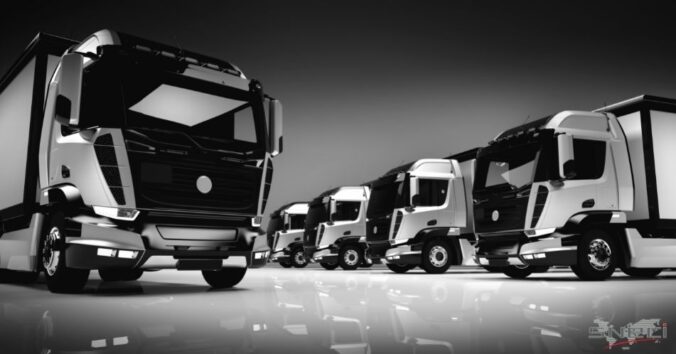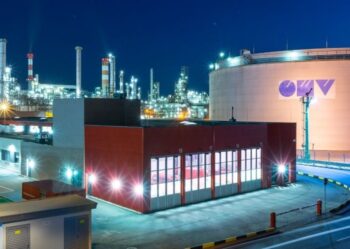How to make the transition to a low-carbon fleet

Decarbonizing a fleet has become not only an environmental issue but also part of a CSR approach for companies. Many solutions exist and their implementation is sometimes not so complex.
Companies are nowadays trying to be more and more respectful of the environment. Real commitment or notoriety, the damages linked to CO2 emissions are regularly pointed out and besides the governments and their lack of involvement, companies are forced to take measures to reduce their carbon footprint.
Whether in their daily missions or their travels, they are committed to making efforts to move towards a greener activity and mobility.
Companies and local authorities with a fleet of vehicles are often trying to decarbonize their fleets and there are many solutions available to them.
Bicycles: the ideal way to achieve cleaner urban travel
The bicycle is without a doubt one of the least polluting modes of transportation today. It does not emit greenhouse gases or micro-particles and does not make any noise. It therefore seems appropriate for companies to opt for it whenever possible. Indeed, it remains the fastest way of transportation for short trips in urban areas and thus allows to bypass the often congested and jammed streets.
Another advantage of the bicycle is that it can be parked without too much difficulty. And in addition to the environmental impact, it also allows for considerable savings. It does not need to be powered (fuel or electricity), does not incur insurance costs and its maintenance costs remain limited.
In order not to limit the use of bicycles for leisure purposes and to encourage home-work trips, the French government has implemented the “Mobility Orientation Law.” Promulgated in December 2019, it aims to transform the mobility policy in depth in order to encourage the use of more ecological, sustainable and less expensive modes of transport.
This law proposes unprecedented measures to encourage companies and local authorities to opt for the use of bicycles for their occasional or daily trips. A €350 million bicycle fund has been set up to triple the proportion of trips made by bicycle, and to fight against theft by progressively marking bicycles and providing secure parking facilities. This law also introduces a sustainable mobility package of up to 400 euros to encourage business travel (in addition to personal travel).
Some brands have already started to switch to bicycles for their employees as part of their CSR approach with the aim of improving the quality of life at work. Other companies offer a subsidy of 200 euros for the purchase of a bicycle, plus reimbursement of the same amount provided that the employee commutes 800 kilometers per year.
Carpooling and carsharing: ecological solutions that are increasingly in demand
Carpooling is a method of travel that consists of sharing a vehicle with other passengers making the same journey.
Car-sharing, on the other hand, consists of making one or more vehicles available to users who have subscribed and paid a subscription or a fixed price beforehand.
It is in fact a rental system that allows the use of self-service vehicles on an ad hoc basis. Although these two practices are often associated with personal travel, they can easily be transposed to business travel.
Car-sharing and car-pooling have many environmental benefits. Air pollution caused by transportation is around 29% worldwide today. Thus, carpooling and carsharing allow for a significant reduction of the carbon footprint, thus favoring a smaller presence of motorists on the road. Indeed, the use of a vehicle with 5 passengers on average pollutes much less than 5 separate vehicles with one passenger each. This also helps to limit road congestion, which is a real problem during rush hour in many cities around the world.
In addition to the environmental aspect, carpooling and carsharing offer real savings. Car-sharing allows its users to do without personal vehicles. Thus, people no longer have to assume all the costs related to the maintenance of their own vehicles (gasoline, technical control, repairs…). As for carpooling, it allows people to make a trip while sharing the costs related to it.
It is in the interest of companies and communities to implement these methods in order to opt for a mobility that is both more ecological and more economical! They could, for example, offer car-sharing for company vehicles and/or set up a car-sharing system between companies/collaborators in the same sector.
Mobilize, a new Renault subsidiary specializing in mobility services, recently launched a car-sharing service under the Mobilize Share brand. The system is simple: the brand is making vehicles (four electric Dacia Springs) available for car sharing in the town of Arcachon (33) since October 1, 2021. Each vehicle has its own parking space and charging station. The rental process is entirely digital. All you have to do is download the Mobilize Share application on your smartphone, and registration is free and takes just a few minutes.
Mobility credit: an alternative for greener mobility
The Mobility Credit can be suitable for a good number of companies.
It takes the form of a budget envelope, the amount of which corresponds to the difference in price between the cost of the company car and that of the alternative chosen by the company and/or the employee.
In other words, the mobility credit gives employees the choice between using a company car or owning a sum of money equivalent to the cost of its annual use.
This gives the employee more flexibility to use this envelope and opt for a more ecological and economical vehicle than the one initially planned by the company. The employee benefits from a substantial budget for travel related to his or her professional activity, which, if used wisely, can lead to greener and more economical mobility.
It is also important to know that employees have the choice to give up the company car, partially or completely. Employees receives a financial compensation if they choose a more ecological mode of transportation than the company car. They can also give up the company car, which would imply a higher compensation.
It is obvious that the mobility credit is not suitable for all types of sectors and companies. It is therefore up to the company to study its fleet and assess the need for such a scheme.
Some large groups currently have a mobility credit for their employees. All of these companies have reduced the number of vehicles in their fleet, by an average of 10 to 30%, by opting for more efficient and cleaner travel solutions
Electric vehicles and charging stations: a must for a low-carbon fleet
Electric vehicles are emerging as a crucial mode of transport for more environmentally friendly mobility. Indeed, the Mobility Orientation Law strongly encourages local authorities and companies to reduce the number of polluting vehicles (thermal vehicles, heavy goods vehicles that consume a lot of fuel, etc.) and to opt for electric and/or hybrid vehicles.
Companies will also be obliged to adapt their infrastructures to the recharging technology (electric, hybrid, etc.) by the end of the thermal era.
For large groups in particular, the law provides for the obligation to equip at least one parking space out of 20 with a recharging facility by 2025. The final objective is to reach a rate of at least 5% of spaces equipped with a recharging mode.
In addition to an obvious lower carbon footprint, opting for electric/hybrid vehicles allows for a real reduction in costs for the company, particularly in fuel costs. The cost of recharging an electric vehicle remains on average two to three times lower than the cost of powering a combustion vehicle, for the same mileage.
Employees can also make savings. If they use their own electric vehicle for work, the law entitles them to mileage allowances that are 20% higher than those applicable to combustion vehicles.
Moreover, plug-in hybrids (under 50g) benefit from an exemption from the TVS under certain conditions, which encourages companies to equip themselves with them. This is the case of the leading hard discount company which, in order to make its current fleet (of 2,200 vehicles) more ecological, is focusing on electrification and particularly on plug-in hybrids, in order to make the transition to 100% electric vehicles.
Raising awareness: essential to involve employees in a more environmentally friendly mobility
As you will have understood, companies have a large number of choices to decarbonize their fleet. But in order to effectively apply one of these solutions, they need to make their employees aware of this cause.
This can take several forms:
- Internal awareness campaigns can be set up to inform employees of the benefits of various “green” modes of transportation.
- In addition, companies can partner with carpooling and/or carsharing providers to encourage people to opt for this type of alternative.
- It is also possible to develop/propose applications that would allow employees to evaluate their own carbon footprint.
- One of the other solutions (already widely spread because of the health crisis), which is offered to companies would be to promote teleworking. Indeed, being present in the company every day of the week is not necessarily a necessity today. Thus, it would allow to reduce the number of travels and thus to limit the atmospheric pollution which is linked to it.
To conclude, there are many solutions to decarbonize your fleet: electric/hybrid vehicles, bicycles, mobility credit, carpooling/sharing… But this requires awareness among employees and good anticipation on the part of companies and local authorities
SNECI et la transition carbone :
At SNECI we did not wait for the Mobility and Climate Law to reduce our carbon footprint. Our “Green” policy means that we already use electric vehicles and by 2030 all our vehicles will be electric.
True commitment of the company but also of its employees, our choice of partners is also made in respect of the environment, we work with Taxi Green companies to reduce our impact
SNECI can also assist you in reducing your carbon footprint, whether through mobility, waste management or industrial performance.
Indeed, we regularly support our customers in the management of their industrial waste, but not only. Our subsidiaries and our purchasing and logistics department, located in 10 countries, allow us to rationalize purchases and their trans-modal transport in order to reduce your carbon footprint linked to transport.
Our teams of 350 spot experts in 45 countries around the world enable us to rethink factory 4.0 with you by improving your industrial performance while taking into account the challenges linked not only to environmental constraints but also to the regulations specific to each country. We intervene as well on the implementation of industrial projects by improving your current processes, by accompanying you in the transfer of production, of the audit and quality, of the reindustrialization, the search for new closer partners… always with this same optics, to guarantee you more profitability, more performance and to reduce your environmental impact.






